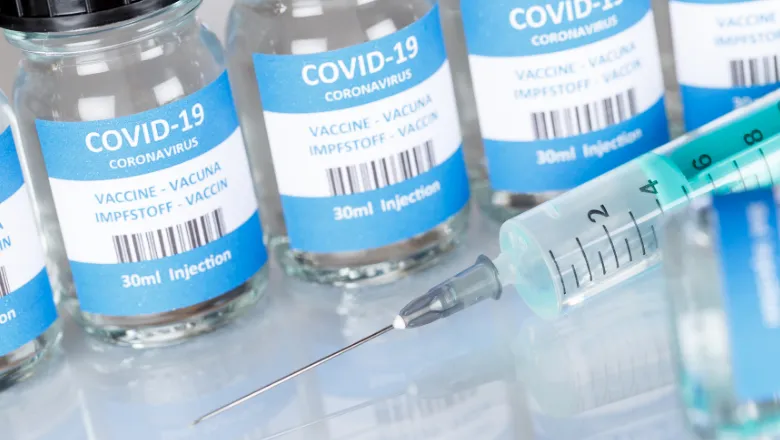New research from the COVID-19 and Cancer Global Taskforce compares the COVID-19 vaccine protection across different types of cancers, and highlights new directions for research into COVID-19 vaccination in cancer patients.

The COVID-19 and Cancer Global Taskforce, led by Professor Richard Sullivan of the Global Oncology Group in the School of Cancer & Pharmaceutical Sciences, have undertaken an in-depth and rapid review for the World Health Organisation to understand how well COVID-19 vaccines have protected cancer patients around the world.
This work builds on the analysis last year from the taskforce looking at global inequalities in the provision and access to COVID-19 vaccinations, as well as the ground breaking work led by Dr Sheeba Irshad at Guy's Hospital on the safety and efficacy of the Pfizer-BioNTech vaccine for cancer patients.
Globally, cancer patients were vaccinated with over 18 different types of COVID-19 vaccines which has made the evaluation of their impact very complex.
The Taskforce found very different approaches to mixing vaccines, boosters, and the timings of when these were delivered. What has also become clear is that understanding whether these vaccines actually protect cancer patients, and which strategies have not been effective, were key questions that have gone largely unanswered.
Led by Dr Laudy Chehade and Dr Debbie Mukherji, this rapid assessment summarised the current data for COVID-19 vaccine efficacy in patients with cancer, suggesting priority areas for future research.
Although patients diagnosed with, or receiving therapy for, cancer were excluded from the initial COVID-19 vaccine trials, emerging real world evidence has been shining a light on how well different types of cancer patients responded.
Several studies found that patients with solid malignancies such as breast or bowel had lower antibody levels post COVID-19 vaccination compared to healthy controls, but better rates than patients with blood cancers, who had the lowest seroconversion rates and antibody levels.
As anticipated, poor serologic responses have been particularly observed among patients receiving B-cell depleting therapies in some types of bloody cancer. Data on T-cell responses, the long term 'memory' of the immune system remain scarce and conflicting, since not all studies have shown a difference between patients with cancer and healthy subjects. This is critical as good T cell responses will mean, even if antibody levels are lower, that cancer patients have been protected from severe COVID-19 disease.
Several questions concerning vaccination remain unanswered when it comes to cancer patients and require further exploration, such as the response duration, the need for response monitoring and rates of breakthrough infections.
This research speaks to an urgent need to retrospectively collect data, and more prospective studies are needed on the long-term protection of patients with different types of cancer from severe COVID-19 with the different types of vaccines and schedules.






